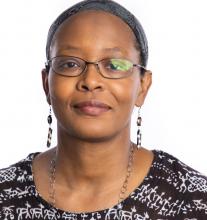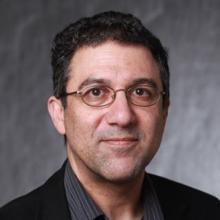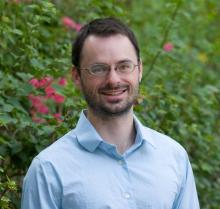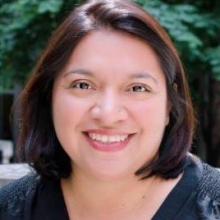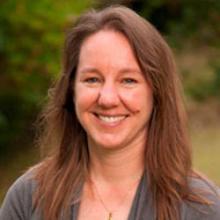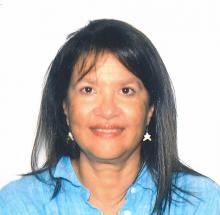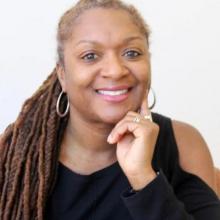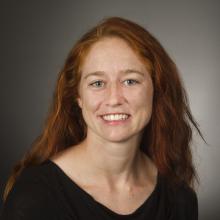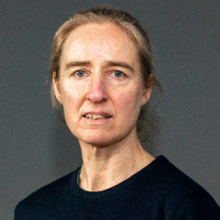Dr. Audrey G. Bennett
Affiliate
Professor
Penny W. Stamps School of Art & Design, University of Michigan
Audrey Bennet is a former Andrew W. Mellon Distinguished Scholar of the University of Pretoria, South Africa, and a former College Art Association Professional Development Fellow. Currently, she is a tenured professor at the Penny W. Stamps School of Art & Design at the University of Michigan where teaches and conducts research in art and design. She studies the user-centered design of multimodal and intersensory images for communication across cultures. Her research publications include: How Design Education Can Use Generative Play to Innovate for Social Change (International Journal of Design); Engendering Interaction with Images (Intellect/University of Chicago Press); The Rise of Research in Graphic Design (PAPress); Interactive Aesthetics (Design Issues); Good Design is Good Social Change (Visible Language). She is the co-editor of the Icograda Design Education Manifesto 2011, and a member of the Editorial Boards of the journals Image and Text (South Africa), Communication Design: Interdisciplinary and Graphic Design Research (Canada), and New Design Ideas (Azerbaijan). She holds an M.F.A. in graphic design from Yale University.
Dr. Ron Eglash
Affiliate
Professor
School of Information at the University of Michigan.
He received his B.S. in Cybernetics, his M.S. in Systems Engineering, and his Ph.D. in History of Consciousness, all from the University of California. His work as a Fulbright scholar was published as African Fractals: modern computing and indigenous design (Rutgers); and featured in his 2007 TED talk. His “Culturally Situated Design Tools” software, offering maths and computing education from indigenous and vernacular arts, is available for free at https://csdt.rpi.edu
Dr. Steve Elliot, Affiliate
Science and Technology Policy Fellow
American Association for the Advancement of Science.
Steve Elliott studies the conceptual foundations of research design, the economics of research, and equity in science and higher education. For more information, please see his current CV or visit https://www.steveelliott.org.
Dr. Patricia Garcia, Affiliate
Assistant Professor
School of Information at the University of Michigan.
Dr. Patricia Garcia is an Assistant Professor. She conducts sociocultural research on race, gender, and technology with a special interest in studying how the use of culturally responsive computing practices can increase girls’ participation in STEM activities. Her area of interest is culturally responsive computing, learning in libraries, community archives, and participatory archives for STEM.
Dr. Brenda Jensen, Affiliate
Professor
Hawaii Pacific University
My primary research interest is to investigate how anthropogenic (human-caused) stressors impact Hawaii’s marine vertebrates, particularly in sentinel species such as whales and dolphins. There is a widespread misconception that Hawai’i is so geographically remote that issues like marine pollution should not have a large impact on marine organisms in this area. Unfortunately, the global distribution of chemicals resistant to environmental degradation means that no marine environment is “pristine”. Professional interests are marine mammal biology, toxicology, biomarkers for stress responses, marine mammal diseases.
One of my key research partners is the National Institute of Standards and Technology (NIST). Since 2010, NIST has partnered with HPU to bank environmental specimens from Hawai’i for current and long term study, as well as to measure contaminants and their effects in several marine species, including marine mammals, sea turtles, sea birds, fish, and corals. This work has significant short and long term benefits as scientists race to document the ecological impacts of rapid environmental change. Contaminants of interest include legacy and emerging organic pollutants, trace elements (including mercury), and plastic marine debris.
Dr. Luis A. Leyva, Affiliate
Assistant Professor
Mathematics Education in the Peabody College of Education & Human Development at Vanderbilt University.
Leyva uses intersectionality, a theoretical perspective and methodological approach from Black feminist thought, to examine how members of historically marginalized groups, including women, students of color, and members of the LGBTQ+ community, construct their identities while navigating institutional and interactional contexts of mathematics education as aspiring STEM majors. He presently serves as the Principal Investigator for a three-year collaborative grant project funded by the National Science Foundation’s Division of Undergraduate Education entitled Challenging, Operationalizing, and Understanding Racialized and Gendered Events (COURAGE) in Undergraduate Mathematics. His work has been published in the Journal for Research in Mathematics Education, Journal of Urban Mathematics Education, and The Journal of Mathematical Behavior. Leyva’s research was distinguished with a Dissertation Fellowship from the National Academy of Education and Spencer Foundation in 2015 and, more recently, the 2018 Early Career Publication Award from the Research in Mathematics Education special interest group of the American Educational Research Association.
Dr. Sharon Nelson-Barber, Affiliate
Professor
WestEd’s Science, Technology, Engineering, & Mathematics (STEM)
Sharon Nelson-Barber’s research centers on understanding how students’ sociocultural contexts influence the ways in which they make sense of schooling in mathematics and science. She also explores ways in which aspects of cultural knowledge can become visible in assessment and evaluation to ensure that schooling is equitable for all students. She works side by side with other Indigenous researchers whose communities span the lower 48 states, Alaska, Micronesia, and many areas of Polynesia. She co-founded POLARIS—Pacific/Polar Opportunities to Learn, Advance, and Research Indigenous Systems—a research and development network that fosters healthy communities, encourages social and educational transformation and brings uniquely Indigenous world views to new frontiers of knowledge. An ongoing project convenes Indigenous elders and scientists to document technical solutions to climate change from both Indigenous and western academic perspectives, and heighten international attention to the need to preserve cultures and societies amidst rising waters and melting ice. Nelson-Barber earned a doctorate in human development from Harvard University and completed postdoctoral work at Stanford University as a Spencer Fellow.
Dr. Maria (Mia) Ong, Affiliate
Senior Research Scientist and Evaluator
TERC
Mia is a Senior Research Scientist at TERC, a STEM education research organization in Cambridge, Massachusetts. She is also the Founder and Director of Project SEED (Science and Engineering Equity and Diversity), a social justice collaborative affiliated with The Civil Rights Project/Proyecto Derechos Civiles at UCLA. For nearly twenty years, she has conducted empirical research focusing on women of color in higher education and careers in STEM and has led the evaluation of several STEM diversity/inclusion programs. Between 1996 and 2000, she directed an undergraduate physics program for students of color and women at U.C. Berkeley; for this work, she was a co-recipient of a U.S. Presidential Award for Excellence in Science, Mathematics, and Engineering Mentoring. Mia is a member of the Advisory Board of the Center for Gender Equity in Science and Technology (CGEST). She is former Chair of the Social Science Advisory Board for the National Center for Women and Information Technology (NCWIT) and a former member of the NSF Committee on Equal Opportunities in Science and Engineering, the NSF Advisory Committee for the GPRA Performance Assessment, and the NSF Advisory Committee to the Social, Behavioral, and Economic Sciences. Mia holds a Ph.D. in Social and Cultural Studies in Education from the University of California at Berkeley.
Dr. Yolanda A. Rankin, Affiliate
Assistant Professor
Flordia State University
Dr. Yolanda A. Rankin joins the faculty as an assistant professor at The Florida State University School of Information in Fall 2017. Her research interests include designing, developing, and evaluating video games to promote learning across various domains, engaging underserved populations in the participatory design of information-based technologies, and developing effective learning environments to promote Computer Science education for K-18 student populations. Dr. Rankin is the proud recipient of the prestigious 2016 – 2017 Woodrow Wilson Foundation Fellowship in support of her research involving the design of intelligent computer game characters that facilitate novice Spanish speakers’ conversational proficiency. She recently co-edited and published her second book Moving Students of Color from Being Consumers to Being Producers of Technology. Yolanda completed her Ph.D. in Computer Science at Northwestern University, her M.A. in Computer Science at Kent State University, and her B.S. in Mathematics at Tougaloo College, a historically Black college in Mississippi. Dr. Rankin accumulated more than twelve years of industry experience before choosing to pursue a career in academia. She developed software tools that enable geographically distributed employees to work together to provide customers quality IT services as a result of her tenure at IBM Research Lab- Almaden. Dr. Rankin also worked as a senior program manager developing optical subsystems at Luxcore Networks and as a software engineer developing and deploying wireless applications and features while at Lucent Technologies Bell Labs. Her industry experience enables her to integrate industry practices in the classroom setting.
Dr. Jakita O. Thomas, Affiliate
Associate Professor
Computer Science and Software Engineering
Auburn University in Auburn, AL.
Jakita O. Thomas is a Philpott Westpoint Stevens Associate Professor of Computer Science and Software Engineering at Auburn University in Auburn, AL. Her research interests include exploring the development of computational algorithmic thinking, Intersectional Computing promoting access to healthcare information and services for under-served populations, improving reasoning using expert cases, scientific reasoning, complex cognitive skills learning, and computer-supported collaborative learning. She received a Bachelor of Science degree in Computer & Information Science with a minor in Mathematics from Spelman College in 1999. In 2006, Dr. Thomas was conferred a Ph.D. in Computer Science with a specialization in the Learning Sciences and Technology from the Georgia Institute of Technology in Atlanta, GA, where she was a Presidential Fellow, National Physical Science Consortium Fellow, tutor, mentor, and Research Assistant. Prior to her current position at Auburn University, Dr. Thomas was a member of the Computer Information Science faculty at Spelman College (2010 - 2016), where she was awarded the Spelman College Presidential Award for Excellence in Teaching by a Junior Faculty Member (2013) as well as the Spelman College Presidential Award for Scholarly Achievement by a Junior Faculty Member (2015). Dr. Thomas was also Research Staff Member in the Service Design and People and Practices groups at IBM Research - Almaden in San Jose, CA (2005 - 2010). Dr. Thomas is a member of the International Society of the Learning Sciences, Association of Computing Machinery, Society of Industrial and Applied Mathematics, African-American Ph.Ds in Computer Science, Upsilon Pi Epsilon Computer Science Honor Society, and Golden Key National Honor Society. Dr. Thomas is a recipient of the National Science Foundation's Faculty Early Career Development (CAREER) Award (2012 - 2019). She is also a recipient of the Presidential Early Career Award for Scientists and Engineers (PECASE) (2016).
Dr. Erin Walker, Affiliate
Associate Professor
School of Computing and Information
University of Pittsburgh
Erin Walker is an Associate Professor with a joint appointment in the School of Computing and Information and the Learning Research and Development Center at the University of Pittsburgh. She is currently working on various projects that attempt to incorporate social and contextual adaptation into learning technologies, including implementing a teachable robot for mathematics learning and re-imagining the design of the digital textbook. Prior to joining the University of Pittsburgh, Walker was in the School of Computing, Informatics, and Decision Systems Engineering at Arizona State University, where she was first a Computing Innovations Postdoctoral Fellow and then spent five years as an Assistant Professor. She completed her Ph.D. in 2010 at Carnegie Mellon University in Human-Computer Interaction and her B.Sc. (Honors) from the University of Manitoba in 2004. Walker's work has resulted in ten journal articles and twenty-seven peer-reviewed, full conference papers, earning her the best young researcher's track paper award at AIED, and best paper nominations at ITS, CSCL, and AIED.
Dr. Monica Ward, Associate
Associate Professor
School of Computing, Dublin City University, Ireland
Monica Ward is the Assistant Head of Teaching and Learning at the School of Computing at Dublin City University. She has an undergraduate degree in Computing Science, an MSc in Computer-Assisted Language Learning (CALL) resources for Endangered Languages, and a Ph.D. in the Integration of Natural Language Processing (NLP) in CALL for Irish in the Elementary School context. She is interested in Computer Assisted Learning for both languages and Computer Science. Ward was the Irish Universities Association’s (IUA) Domain Expert on the National Council for Curriculum and Assessment (NCCA) Computer Science Development Group and she continues to represent the IUA on the Department of Education’s Implementation group. She has continually advocated for a gender-inclusive national Computer Science curriculum for Ireland. She is her university’s representative on INGENIC (Irish Network for Gender Equality In Computing). She is the co-founder and Chair of the Less Commonly Taught Languages Special Interest Group at EUROCALL and is passionate preserving and maintaining endangered languages. She has developed language learning resources for Irish, Tojolaba’al (an indigenous language in Mexico), and Nawat (an endangered language in El Salvador). Ward has worked and/or been a visiting professor in Japan, the UK, USA, El Salvador, Honduras, and Saudi Arabia. She helped strengthen the Computer Science Department in San Vicente, El Salvador where she worked for two years, teaching in Spanish. She has been a visiting professor in an all-female university in Saudi Arabia where she lectured on an MSc in Data Analytics, a leading-edge program that prepared Saudi women for high-quality jobs in the workforce. Ward is a first-generation university graduate and a firm believer in the value and power of education for all and enjoys working with a diverse student population. She is the recipient of a Computer Science 4 High School (CS4HS) Google award and an International Strategic Cooperation Award Japan. She speaks Spanish, Japanese, French, Irish, Arabic, and Nawat in decreasing levels of fluency.
